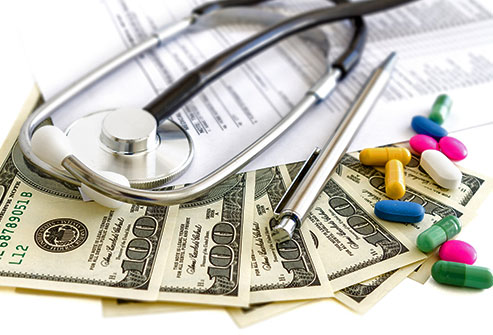Medical debt is the largest source of personal debt in the US. Two-thirds of all personal bankruptcies are due to medical bills. About 115 million Americans under 65 report issues with medical bills, have skipped medical care due to cost, or have been uninsured/underinsured.

As a result, more and more Americans are seeing their credit suffer because of medical debt. Now, we may see some relief. The “big three” credit reporting agencies (Equifax, Experian, and TransUnion) announced last week that they are making changes to the way medical debt affects your credit report. Your credit report is a record of your history of borrowing and repaying money—and includes your mortgage/rent, car payments, your credit cards, and your medical debt. It is important because it affects your ability to get future loans. Some employers also look at credit ratings, so it could also impact your ability to get a job.
Medical debt is tricky. Often there are billing errors that result in unpaid bills or the insurance company refuses to pay the amount billed by the provider. But the problem is that these unpaid bills were showing up on consumers’ credit reports—even when under dispute. Then they would stay on that credit report as “bad debt” for years—even after they were settled and paid. Even if these reports were incorrect, was hard for consumers to have these errors fixed.
Now, the “big three” are changing medical debt reporting to address the inequity, unfairness, and impact of medical debt on consumer credit reports. It is thought that these changes could result in the elimination of 70% of medical debt.
Some of the changes include
- Starting July 1, 2022, medical debts that are paid (either by the consumer or the insurance) will be removed from the consumers’ credit report immediately. No more waiting 7 years for those debts to be removed.
- Unpaid medical debts won’t show up on your credit report for 1 year (up from six months).
- Beginning in early 2023, if your medical debt is less than $500, it will be dropped from your credit report.
What can I do?
- It’s always a good idea to check your credit report and score often. Beware of scams or agencies charging you money to access your credit report. You can access your credit report through any of the big three agencies once a year. At this time, due to the COVID-19 Pandemic, you can check it weekly. Learn more here.
- Check for errors! If you see something that doesn’t look right, report it right away to both the credit bureau AND the agency attempting to collect the debt.
- Keep good records of your visits (including dates), your explanation of benefits forms (EOBs), and your bills. Be sure they match up. Ask questions if bills look incorrect.
- Be sure that ALL of your insurance companies are billed appropriately. This is especially important if you have Medicare and a supplemental insurance. Often supplemental plans are not billed because your provider doesn’t know you have another plan. Make sure your provider has up-to-date information about all of your insurance coverage.
- Don’t put the bills in a drawer and hope for the best. I know it is scary, but it is much better to ask for help than to let things go to collections and end up on your credit report. Many larger healthcare institutions have financial assistance programs that you may be eligible for…it never hurts to ask for help.
Christina is a clinical oncology social worker and the psychosocial content editor at OncoLink. Christina blogs about resources available to the cancer community, as well as general information about coping with cancer practically, emotionally, and spiritually. Christina is also an instructor at the Penn School of Social Policy and Practice. In her spare time, she loves to knit and volunteer with her therapy dogs, Linus and Huckleberry. She also loves to travel, cook and is an avid Philly sports fan.